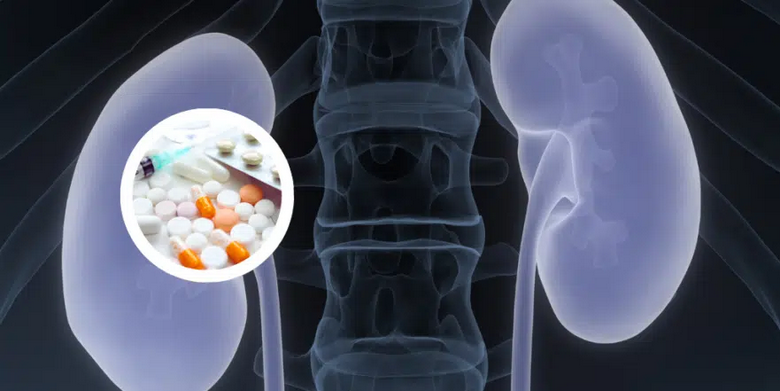When it comes to our health, we often trust that the medicines we take are helping us. But what if some of those very medications, even common ones, could be quietly harming our kidneys? Dr. Frita, a board-certified kidney doctor, sheds light on nine common medications and drugs that have the potential to cause kidney damage. Understanding these risks is important for protecting your kidney health.
Understanding Kidney Damage from Medications
It’s a bit unsettling to think that something meant to help us could also cause harm. Many medications, from everyday pain relievers to more serious treatments like chemotherapy, can have side effects that impact our kidneys. This doesn’t mean you should stop taking prescribed medications, but it does mean you should be aware and talk to your doctor. Being informed helps you make good choices about your health.
Key Takeaways
NSAIDs (Nonsteroidal Anti-Inflammatory Drugs): These are common pain relievers like ibuprofen and naproxen. While great for pain and swelling, they can reduce blood flow to your kidneys, potentially leading to kidney injury or even chronic kidney disease. This is especially true if you’re dehydrated or already have kidney problems. Always use them as directed and talk to your doctor if you take them regularly or in high doses.
Antibiotics: We take antibiotics to fight infections, but some, like gentamicin and vancomycin, can be tough on the kidneys, especially when given through an IV in the hospital. Even common outpatient antibiotics like Bactrim can cause issues if your kidneys are already weak or you’re dehydrated. It’s always a good idea to ask your doctor if an antibiotic could affect your kidneys.
ACE Inhibitors (Angiotensin-Converting Enzyme Inhibitors): Medications like lisinopril and enalapril are often prescribed for high blood pressure and can even protect kidneys in early stages of certain kidney diseases. However, if you have advanced kidney disease, blockages in kidney arteries, or are dehydrated, these drugs can actually harm your kidneys. Your doctor should check your kidney function before and after starting these medications.
Diuretics (Water Pills): Drugs like furosemide and hydrochlorothiazide help remove excess fluid from your body, which is good for conditions like heart failure. But taking too much or being on them for a long time can lead to dehydration and kidney damage. Your doctor should regularly monitor your kidney function if you’re on these.
ARBs (Angiotensin Receptor Blockers): Losartan and valsartan are common blood pressure medications, often used if ACE inhibitors cause a cough. Like ACE inhibitors, ARBs can worsen kidney function in people with advanced kidney disease or dehydration. It’s important to monitor kidney health while on these.
Chemotherapy Agents: When treating cancer, chemotherapy is often necessary. However, some agents, like cisplatin and methotrexate, can be toxic to the kidneys. It’s a balancing act, and your oncologist should monitor your kidney function and discuss alternatives if possible. Staying well hydrated during treatment is also important.
Imaging Contrast Dyes: These dyes are used in scans like CT scans. While generally safe, they can cause kidney damage, especially in people with existing kidney disease, dehydration, or low blood volume. Always ask about alternatives or if IV hydration can be given before and after the scan to protect your kidneys.
Mood Stabilizers (Lithium): Lithium is used to treat conditions like bipolar disorder. While effective for many, it can cause kidney damage over time. If you or a loved one takes lithium, regular kidney function tests are a must. Sometimes, alternative mood stabilizers that are less harmful to the kidneys can be used.
Alcohol and Illicit Drugs: Excessive alcohol intake can lead to high blood pressure, a major cause of kidney failure. Illicit drugs like cocaine and heroin can also severely damage kidneys. Cocaine can constrict blood vessels and cause dangerously high blood pressure, while heroin can contain substances toxic to the kidneys. Avoiding these substances is crucial for kidney health.
Being Your Own Health Advocate
It’s clear that many medications, even those prescribed by doctors or bought over the counter, can affect your kidneys. This isn’t meant to scare you, but to empower you. Being your own advocate means asking questions, understanding your body, and working with your healthcare team.
Here are some things you can do:
Know Your Kidney Function: Ask your doctor about your eGFR (estimated glomerular filtration rate) and serum creatinine levels. These numbers give a picture of how well your kidneys are working.
Stay Hydrated: Drinking enough water is simple but powerful. It helps your kidneys flush out waste and can protect them from certain drug-related harms. Talk to your doctor about how much water is right for you.
Discuss Medications with Your Doctor: Before starting any new medication, or if you’re concerned about one you’re already taking, ask your doctor about its potential effects on your kidneys. Don’t be afraid to ask if there are alternatives or if your dosage needs to be adjusted based on your kidney health.
Report Side Effects: If you experience any unusual symptoms after starting a new medication, tell your doctor right away. Early detection of kidney issues can make a big difference.
Consider a Kidney Doctor: If you have existing kidney disease, or if your doctor identifies a risk, asking for a referral to a nephrologist (kidney doctor) like Dr. Frita can provide specialized care and guidance.
The Balancing Act of Medication
Medications are often life-saving and improve our quality of life. The goal isn’t to avoid them, but to use them wisely. It’s a balancing act between treating a condition and protecting your kidneys. By staying informed, asking questions, and working closely with your healthcare providers, you can help ensure that the benefits of your medications outweigh the potential risks to your kidney health. Your kidneys work hard for you every day, so it’s important to give them the care and attention they deserve.



